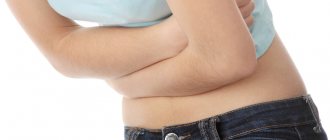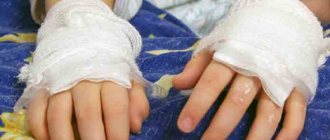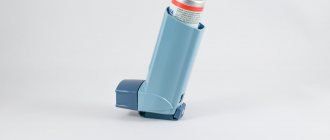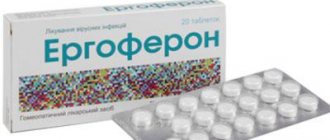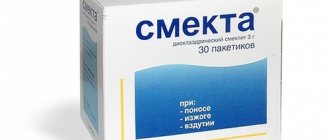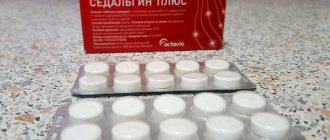Mild forms of food poisoning go away without drug treatment. The main thing is to empty the stomach and intestines. In severe cases, when the cause of poisoning is pathogenic bacteria, gastric lavage alone is not enough.
If you are diagnosed with salmonellosis, staphylococcus or dysentery, you will need antimicrobial therapy, since pathogens multiply quickly and can only be stopped by properly selected antibiotics.
Heavy artillery
Antibiotics for food poisoning with fever in an adult
Antibiotics for poisoning are used in case of bacterial infection. Often people use such medications on their own, but do not suspect that they cause even greater harm to the body. How to take antibiotics for food and chemical poisoning? What to do if intoxicated?
Indications
Poisoning happens to every person. There are many reasons for this phenomenon. There are two types of intoxications – toxic and infectious. The first group is poisoning resulting from the consumption of spoiled foods or chemical compounds. Such overdoses pass quickly, do not require serious treatment and do not cause negative consequences.
Infectious intoxications are diagnosed as a result of the penetration of harmful bacteria and viruses into the body that negatively affect health. Poisoning of this type is severe; simple treatment is not enough, so doctors often prescribe antibacterial agents . There are several types of intoxications for which antibiotics cannot be avoided.
- Dysentery.
- Typhoid-like or septic salmonellosis.
- Intestinal infections caused by staphylococci.
Antibiotics for intestinal poisoning are selected and prescribed by the doctor after a thorough diagnosis. It is prohibited to use medications on your own. Antibiotics for poisoning in adults are prescribed in several cases.
Occasions:
- lack of a positive result after first aid and treatment started,
- inability to lower the temperature for a long time,
- constant vomiting that cannot be stopped by any means,
- persistent diarrhea (more than 10 times a day),
- The presence of blood or mucus is noted in the stool.
It is recommended to remember that antibiotics can only be used in children with fever after a doctor’s permission. Antibacterial medications cause negative consequences if used incorrectly.
List of known antibiotics for poisoning
What antibiotics are most often used for poisoning? The antibacterial agent is prescribed by the doctor after the pathogen has been identified and first aid has been administered.
Before starting treatment, contraindications are excluded; antibiotics with the least toxicity and minimal negative effects come first.
- Nifuroxazide. Often used for food poisoning, the active ingredient is nifuroxazide. It is found in the form of tablets and suspension. Actively gets rid of viruses and microorganisms, helps cope with unpleasant symptoms and reduces the risk of developing dangerous and serious consequences.
- Phthalazol. The drug belongs to the group of sulfonamides. It has a detrimental effect on most intestinal microorganisms and quickly eliminates infection. “Works” in the intestines and is absorbed slowly into the general bloodstream. It is not allowed to use antibiotics for thyrotoxicosis and liver diseases.
- Levomycetin. One of the most famous medicines with an affordable price. Able to get rid of many types of bacteria and harmful microorganisms. It has different release forms. Has a negative effect on the liver and kidneys and is incompatible with alcoholic beverages. The drug is prohibited for use during pregnancy and breastfeeding.
- Norfloxalin. It has a detrimental effect on gram-negative bacteria and Staphylococcus aureus, and is part of the group of fluoroquinols. It can be purchased in tablet form. Not applicable for hypersensitivity, pregnancy and lactation.
- Cefix. Release form: capsules and powder. It has a rapid effect; when used immediately after food poisoning in adults, it significantly reduces the risk of developing negative consequences. It has contraindications that must be excluded before starting treatment.
- Ersefuril. The active substance is nifuroxazide. Quickly relieves diarrhea, an effective remedy that can destroy most negative microorganisms in the intestines. It has low toxicity and is poorly absorbed into the general bloodstream.
- Furazolidone. The tablets have a pronounced antibacterial effect. Used for infectious and food intoxications. Prevents harmful microorganisms from spreading and multiplying. The duration of use depends on the severity of the poisoning.
- Ofloxacin. Active against many bacteria and microorganisms, quickly relieves unpleasant symptoms. The drug is not suitable for independent use due to many contraindications.
- Norsulfazole. Effectively copes with salmonellosis and dysentery, available in the form of tablets and powder. Use is not allowed for liver disease, glucose deficiency, during pregnancy and breastfeeding.
- Rifaximin. It is used to treat intestinal infections, copes with gram-negative and gram-positive bacteria, absorption into the general circulatory system does not occur, and does not allow toxic substances to spread. Available in different forms, it has contraindications.
This is a list of the best and most commonly used antibiotics for food poisoning. Each product has its own indications and contraindications, as well as features of use. Care and caution are required when treating children and adults with such medications.
Pros and cons of antibiotics
What are the positive and negative aspects of using antibacterial medications for poisoning? An undoubted advantage is the rapid action of antibiotics. When using such medications, the symptoms of poisoning disappear faster.
Medicines have a detrimental effect on harmful bacteria, which leads to an acceleration of the healing process. However, it is recommended to remember that antibiotics for poisoning are prescribed in cases where no other means help.
If antibacterial drugs are used incorrectly, side effects may develop, which are disadvantages of treatment.
- disturbances in the functioning of internal organs,
- development of dysbacteriosis,
- malfunctions of the liver, kidneys, stomach,
- allergic manifestations in severe form.
Antibiotics have a detrimental effect on pathogenic bacteria, but can also destroy beneficial microorganisms. Therefore, after using such drugs, it is recommended to take agents to restore intestinal microflora.
The danger of antibiotics during intoxication
Why are antibiotics not allowed to be used independently? Many patients do not understand the seriousness of such medications, so they simply buy pills at the pharmacy and start taking them.
However, self-treatment often leads to the development of negative consequences.
- The wrong medicine does not help, bacteria continue to multiply in the body.
- If used independently, a person is unable to correctly calculate the dosage, which may cause serious stress on the kidneys and liver.
- The development of severe allergic reactions is possible.
- Self-use leads to the body gradually becoming accustomed to the medication; in the future, stronger drugs will have to be chosen.
What is considered dangerous is that an antibiotic taken independently often smoothes out the picture of the disease, but does not help. In such cases, the disease starts, it is more difficult to make a diagnosis, as well as to choose the right treatment.
Antibiotics are allowed to be used only as prescribed by a doctor. If the infection develops again, the doctor selects drugs from a different group, because bacteria quickly adapt to such drugs.
What can replace antibiotics?
Drugs from the sulfonamide group are no less effective than strong antibiotics. However, they are safer due to the fact that they are poorly absorbed into the general bloodstream and do not have a high toxic effect.
Medicines of this group are active against pathogenic bacteria and are used in cases of intolerance to serious antibiotics in humans.
Medicines related to sulfonamides are also prescribed by a doctor; it is not recommended to use them on your own.
Antibiotics are often used for poisoning. It is recommended to remember that antibacterial drugs are unsafe and should not be prescribed independently. The drugs have many contraindications and, if used incorrectly, cause the development of many side effects. When treating poisoning, you must follow all instructions from a medical professional.
Source: https://hpt-kld.ru/antibiotiki-pri-pischevom-otravlenii-s-temperaturoy-u-vzroslogo/
Symptoms of intoxication
When ingesting low-quality or toxic products, symptoms appear:
- The amount of gases in the intestines increases, which provokes flatulence.
- Pain syndrome appears in the upper epigastrium, and the motor activity of the organ decreases.
- The patient feels sick and vomits.
- Diarrhea and increased urine flow.
- Body temperature increases slightly.
- Due to diarrhea and vomiting, the patient loses a lot of water, and symptoms of dehydration appear.
- The patient loses the desire to eat.
- Weakness appears in the body, dizziness and a constant feeling of dry mouth.
This clinical picture is typical for moderate to mild intoxication. Being inside a heavy toxin leads to the development of severe damage to the body. Then the patient experiences delusions, hallucinations, convulsions, and fainting.
In children, signs of dehydration are serious and can cause the condition to worsen. It is more difficult for a young patient to survive infection than for an adult. Therefore, if a child’s body is poisoned, measures are taken to retain moisture in the body or it is supposed to compensate for its lack by taking dehydration drugs.
Antibiotics for food poisoning in adults and children
In summer and autumn, outbreaks of intestinal infections are often observed. The appearance of diarrhea and vomiting is a situation when people arbitrarily use antibiotics in case of poisoning.
Let's find out whether it is worth using antibiotics for food poisoning or whether it is better to replace them with other drugs.
Emergency measures for food intoxication
Stale food or improperly stored food often causes poisoning. Salads with mayonnaise spoil especially quickly; meat dishes; cottage cheese and cheese made without observing hygiene rules; thermally poorly processed eggs.
On the surface of food stored outside the refrigerator, bacteria multiply rapidly, producing exotoxins. There are more than 30 types of pathogens of intestinal infections. When they enter the stomach and intestines with food, they cause a disease, the symptoms of which are frequent vomiting, uncontrollable diarrhea, headache, and fever up to 39°C. At the same time, a person loses fluid and electrolytes.
Dehydration is manifested by severe thirst, muscle cramps, and a sharp decrease in blood pressure. To restore the body, you need to drink plenty of fluids. Before the doctors arrive, the patient should be given unsweetened tea or water in small portions every quarter of an hour.
In addition to fluid replenishment, other measures are taken:
- cleansing the stomach of ingested food;
- taking sorbents;
- restoration of water-salt balance.
The use of antibiotics is justified for bacterial intestinal infections. The doctor selects an antibiotic after examining the patient and receiving test results.
Before deciding which antibiotics to take in case of poisoning, you need to establish its cause. This requires a bacteriological examination of stool. The method allows you to identify the causative agent of the disease and determine its sensitivity to antibiotics.
Antibacterial agents have the property of destroying not only pathogenic microorganisms, but also normal intestinal microflora. With prolonged use, dysbacteriosis develops, which negatively affects digestion.
Intestinal infections in 80% of cases are caused by rotavirus. The use of antibiotics in this case will not have any effect.
In addition, self-administration of antibacterial drugs can worsen the situation. With such symptoms as diarrhea and vomiting, many diseases occur that require a completely different approach to treatment:
- bowel cancer;
- peptic ulcers of the digestive system in the acute stage;
- appendicitis (often mistaken for poisoning even by doctors);
- In children, diarrhea can occur with pneumonia, inflammation of the middle ear, or teething.
An antibiotic for poisoning and diarrhea, while temporarily improving the condition, erases the true picture of the disease and delays proper treatment. With appendicitis, this can cost the patient his life.
Antibiotics for food poisoning in adults and children are prescribed if the infectious nature of the disease is established. Medicines are intended to destroy bacteria that have a negative effect on the human digestive system.
Antibiotics for bacterial intestinal infections speed up recovery by eliminating the cause of the disease. By following medical recommendations, the risk of side effects is reduced.
Severe food poisoning is accompanied by fever, chills, incessant vomiting, and dehydration. Such signs are an indication for the use of antibacterial therapy. Antibiotics are used for the following intestinal infections:
- salmonellosis;
- brucellosis;
- amoebiasis;
- gastroenteritis of mixed microbial etiology;
- infectious colitis;
- dysentery;
- typhoid and septic forms of enterocolitis;
- severe course of toxic infections.
Modern antibiotics for poisoning in adults - Ersefuril, Nifuroxazide, Levomycetin.
Pediatricians prescribe antibacterial drugs for vomiting and diarrhea in children if a gastrointestinal tract infection is diagnosed. For children, non-toxic agents Enterofuril and Cefix are used, which act on pathogenic bacteria. Medicinal substances are not absorbed into the blood and do not disrupt the intestinal microflora.
Antibiotics for food poisoning are prescribed in usual therapeutic doses for a course of 5–6 days. If necessary, the attending physician can adjust the treatment regimen to lengthen the course.
Contraindications to treatment with antibacterial drugs
Antibacterial therapy for mild poisoning is contraindicated, as it leads to disruption of the natural intestinal microflora and reduces immunity.
Digestive upset in the form of nausea and infrequent diarrhea can be eliminated by taking sorbents and following a diet with therapeutic fasting on the first day.
In case of moderate poisoning, gastric lavage and sorbents - Smecta, activated carbon, Enterosgel, etc. are required.
The main obstacle to the use of antibiotics is allergies. If a rash appears during treatment, the medicine is discontinued.
Doctors offer a list of the best antibacterial agents for adults. These drugs are often used for food poisoning:
Nifuroxazide
An effective antibacterial agent is a representative of the nitrofuran group. Nifuroxazide capsules actively suppress the proliferation of staphylococci, streptococci, Escherichia, Shigella, and Salmonella. Acting only in the intestines, the substance does not enter the bloodstream. Used for infectious enterocolitis, diarrhea of bacterial origin.
The advantage of the drug is that it is allowed during pregnancy.
According to the instructions, this drug is used in the form of a suspension for children who are poisoned from a month of age. The dose is calculated by the doctor depending on the weight of the child, as well as the severity of the infection.
Alpha Normix
A broad-spectrum drug. The antibiotic Rifaximin in its composition suppresses the growth of bacteria. Destroys pathogenic microflora without being absorbed into the general bloodstream.
Tablets are prescribed in the treatment of food poisoning caused by bacterial infections. It is allowed to use the product in case of poisoning in adults at sea or on a long trip. Traveler's diarrhea is caused by contaminated food or tap water.
Ersefuril
The antimicrobial agent contains nitrofuran, the mechanism of action of which is to destroy the membrane of bacteria, depriving them of the ability to produce toxins.
Ersefuril for diarrhea does not disturb the natural intestinal microflora. It is prescribed for diarrhea of infectious origin, occurring without fever or intoxication.
Levomycetin
The universal drug, which has been used for years, destroys most of the pathogens of intestinal infections. The antibiotic is used in the treatment of dysentery, salmonellosis, and typhoid fever. Relieves symptoms of food poisoning - diarrhea, nausea, vomiting.
Furazolidone
The medicine has antibacterial and antiprotozoal effects. Its use is indicated for dysentery, foodborne illnesses, and paratyphoid fever. In addition, Furazolidone is used to treat infections caused by Giardia and Trichomonas. The dose is calculated by the doctor taking into account the severity of the disease. The drug is contraindicated when carrying a child or breastfeeding.
Tetracycline hydrochloride
Antibacterial tablets work well for diarrhea caused by salmonella and brucella. Tetracycline even copes with Vibrio cholerae. Unlike nitrofurans, the drug is absorbed from the intestine, entering the systemic circulation.
A number of antibiotics are successfully used at any age. But only the pediatrician selects the medicine. Each drug has its own contraindications. The most effective antibiotics for poisoning in children:
- Cefix. The broad-spectrum product is available in the form of a suspension and powder. Cefix is active against pathogens of infectious diarrhea. It is also used in the treatment of ENT diseases, inflammation of the respiratory tract and genitourinary system. Children readily drink the product in the form of a suspension with flavors.
- Enterofuril. The drug contains nifuroxazide. The mechanism of action is inhibition of dehydrogenase. In this case, the process of production of toxins by the destroyed bacterial cell is disrupted. For children, an antidiarrheal drug is produced in the form of a banana-flavored suspension.
Consequences of improper use and their prevention
Antibiotics for food poisoning with fever are effective, but their use often causes side effects. This is often due to incorrect actions of patients:
- self-medication;
- violation of the frequency of administration;
- reducing or increasing the duration of treatment.
If used without permission by a doctor, an overdose of antibiotics may occur with the possible development of the following consequences:
With long-term use of antibiotics, probiotics are additionally used to prevent consequences. Linux is often used for this purpose. This safe product can be used by pregnant women and nursing mothers. According to the instructions, the course of treatment is a week.
Laktofiltrum, Hilak Forte, Atsipol also restore normal microflora. The drugs remove pathogenic bacteria from the intestines and create favorable conditions for the development of beneficial lacto- and bifidobacteria.
When treating with antibiotics, you must follow your doctor's recommendations. You cannot arbitrarily reduce or increase the dose or stop taking the medicine. Do not give antibiotics to your child unless the doctor prescribes them.
Source: https://otravilsya.com/pomosh/lekarstva/antibiotiki/
Indications for antibiotic therapy
Severe food poisoning is accompanied by fever, chills, incessant vomiting, and dehydration. Such signs are an indication for the use of antibacterial therapy. Antibiotics are used for the following intestinal infections:
- salmonellosis;
- brucellosis;
- amoebiasis;
- gastroenteritis of mixed microbial etiology;
- infectious colitis;
- dysentery;
- typhoid and septic forms of enterocolitis;
- severe course of toxic infections.
Modern antibiotics for poisoning in adults - Ersefuril, Nifuroxazide, Levomycetin.
Pediatricians prescribe antibacterial drugs for vomiting and diarrhea in children if a gastrointestinal tract infection is diagnosed. For children, non-toxic agents Enterofuril and Cefix are used, which act on pathogenic bacteria. Medicinal substances are not absorbed into the blood and do not disrupt the intestinal microflora.
Antibiotics for food poisoning are prescribed in usual therapeutic doses for a course of 5–6 days. If necessary, the attending physician can adjust the treatment regimen to lengthen the course.
Antibiotics for adults and children in case of poisoning
Antibiotics have gained the reputation of effective, fast-acting drugs. Many people consider them to be something of a panacea that can help with any serious ailment. Are they appropriate for poisoning?
Indications for taking antibiotics for poisoning
All cases of body poisoning fall into two categories:
- toxic poisoning caused by eating poor-quality and stale food and the ingestion of toxic substances into the digestive tract;
- infectious poisoning caused by pathogenic bacteria, viruses and protozoa.
In the first case of poisoning, the use of antibiotics is inappropriate: these drugs do not have antidotes or antidotes. They are powerless in the fight against chemical toxins, radionuclides, and heavy metal salts.
If the poisoning is caused by pathogenic microorganisms, antibiotics can help. They suppress the growth and reproduction of pathogenic microorganisms, leading to their destruction.
Antibiotics for food poisoning are used if there are the following signs of poisoning:
- vomiting that continues for 2 days;
- severe poisoning, in which other means do not help;
- the appearance of mucus or blood in the stool;
- high temperature that does not decrease throughout the day;
- frequent bowel movements - more than 10 times a day.
This category of medications can only be prescribed by a doctor after laboratory testing. Self-medication of antibiotic poisoning at home is prohibited.
Advantages and disadvantages of taking antibiotics
The action of antibiotics is directed primarily against a specific type of pathogen. But still, they can be prescribed only after tests have been completed.
Most antibiotics have a long list of contraindications and restrictions.
They can reduce the effectiveness of other medications, impair the patient's ability to concentrate, and cause various negative effects - from nausea and dizziness to hemolytic anemia.
Antibiotics for food poisoning in adults (most of them) are contraindicated for pregnant and lactating women, as they have a detrimental effect on the health of the child.
With long-term use of antibacterial drugs, the body gets used to their active ingredients, and subsequent therapy is ineffective.
Almost all drugs in this group weaken the body's protective functions. After such therapy, it is more difficult for him to resist infections, which increases the risk of new diseases.
Many antibiotics are absorbed into the blood and have a detrimental effect on internal organs and systems. The liver, kidneys and pancreas suffer the most from toxic effects. If the patient has chronic pathologies of these organs, therapy can lead to exacerbation.
After taking antibacterial medications, it is necessary to restore the intestinal microflora. These drugs destroy not only pathogens, but also beneficial bacteria living in our digestive tract. After such “heavy artillery” you need to take a course of probiotics and follow a special diet.
Antibiotics for poisoning for adults
These medications are used to treat the following conditions in adults:
- salmonellosis of septic or typhoid form;
- staphylococcal intestinal infections;
- dysentery.
When prescribing specific antibiotics for poisoning in adults, the doctor takes into account the general condition of the patient, the presence of contraindications, allergies, and individual susceptibility to the active ingredients.
Antibiotics for poisoning for children
Antibiotics are used more often for poisoning in children - children's weak immunity is not able to cope with some pathogenic microbes on their own. In addition to cases of poisoning, this group of medications is appropriate for the treatment of:
- Escherichiosis;
- campylobacteriosis;
- Klebsiella infection;
- Proteus infection.
Only in this case will the body accumulate such an amount of the active component that will destroy microbes, but will not harm health.
List of the most effective antibiotics for poisoning
When treating poisoning in adults, medications from the following list are most often used:
Ofloxacin is an antibiotic of the fluoroquinolone group with a bactericidal effect: it does not simply suppress the growth of pathogenic microorganisms, but destroys them. Available in tablet form.
Ofloxacin is contraindicated in epilepsy, pregnancy and breastfeeding. In pediatric practice, it is used to treat patients over 15 years of age.
May cause allergic reactions, vomiting, diarrhea, changes in the biochemical composition of the blood. Treatment period is 7–10 days.
Rifaximin (Italian analogue - Alpha Normix) is an antibiotic of the ansamycin group, active against gram-positive and gram-negative bacteria.
Available in the form of tablets and bottles with granulate for preparing a suspension. Does not apply if there is intestinal obstruction, peptic ulcer disease or hypersensitivity to the components of the drug.
Taking it can cause heart rhythm disturbances, shortness of breath and candidiasis. The course of treatment is a week.
Levomycetin is one of the inexpensive antibiotics. Dosage form - tablets, powder for preparing a solution and subsequent intravenous or intramuscular administration.
The medication is not prescribed to women during pregnancy and lactation, children under 3 years of age, patients with impaired hematopoietic function, severe damage to the kidneys and liver. Admission is often accompanied by side effects and allergic reactions.
Cannot be combined with alcohol. The course of treatment is up to 2 weeks (tablets) or 5–15 days (injections).
Cefix is an antibiotic of the third generation cephalosporin group. Available in the form of capsules and powder for suspension.
Active against a wide range of pathogenic microbes, but ineffective against infection with staphylococci, enterococci and clostridia. Not used to treat children under 6 months and patients with porphyria.
Side effects are rare. The course of treatment is from 5 to 14 days, depending on the presence of complications.
Norfloxacin is an antibiotic that belongs to the group of fluoroquinolones. Destroys most gram-negative bacteria. Dosage form: tablets. Contraindicated during pregnancy, breastfeeding, if there is liver failure. Duration of therapy is 1–2 weeks.
This is not a complete list of the names of antibacterial agents appropriate in the treatment of poisoning. The drugs have an optimal price-effectiveness ratio - so it is likely that your doctor will prescribe one of them for you.
Alternative to antibiotics
Antibiotics for food poisoning can be replaced with antimicrobial drugs. They are absorbed into the blood and act primarily in the intestines. This alternative is appropriate for treating pregnant and lactating women, young children, and allergy sufferers. Among the most common:
- Nifuroxazide is a drug in the form of tablets and suspensions. Effective against most pathogens that cause intestinal disorders - staphylococci, salmonella, shigella, klebsiella, vibrio cholerae. Does not affect some strains of Proteus and Pseudomonas. Nifuroxazide is not adsorbed in the stomach. Reception is rarely accompanied by side effects; Among the possible ones are diarrhea and dyspeptic symptoms. The product is contraindicated only in case of individual intolerance to the components. Duration of treatment is 5–7 days.
- Ersefuril is an intestinal antiseptic of the nitrofuran group. Available in the form of capsules and suspensions. It has antidiarrheal properties and rarely causes side effects. Do not use if you are allergic to nitrofuran derivatives; can be used to treat infants starting from the first month of life.
- Norsulfazole is a sulfonamide drug in the form of tablets and powder. Effective against Escherichia coli, staphylococci and hemolytic streptococcus. Allowed from 4 months of age. May lead to kidney problems, leukopenia, and intestinal disorders. Duration of therapy is 3–6 days.
If the illness is caused by a virus, taking antibacterial drugs is useless. In this case, the patient is prescribed special antiviral medications. To normalize the general condition, symptomatic therapy is appropriate - antipyretics, painkillers, antiemetics.
Source: https://otravamnet.ru/medicamenty-otravlenie/antibiotiki-pri-otravlenii.html
What harm do antibiotics cause, how to eliminate it
Antibacterial agents have side effects that lead to health problems in adults and children. Each drug has a wide list of contraindications that cannot be ignored. When prescribing medications, the doctor evaluates all the features of the drug’s effect, including:
- negative effects on immune cells;
- disturbance of intestinal microflora;
- the occurrence of candidiasis of the genitals and oral cavity;
- intestinal dysbiosis;
- allergic reactions;
- neuro-nephro-hepatotoxic potential of drugs.
To eliminate the consequences of using antibiotics, Linex and Acipol are prescribed, which normalize the intestinal flora. Independent prevention of dysbacteriosis is taking bifido-lactobacteria. To restore immunity, you need to drink tinctures of Rhodiola rosea, ginseng, and herbal teas.
Antibiotics for poisoning - list of popular drugs
Mild forms of food poisoning go away without drug treatment. The main thing is to empty the stomach and intestines. In severe cases, when the cause of poisoning is pathogenic bacteria, gastric lavage alone is not enough.
If you are diagnosed with salmonellosis, staphylococcus or dysentery, you will need antimicrobial therapy, since pathogens multiply quickly and can only be stopped by properly selected antibiotics.
Symptoms of food poisoning
A difficult situation provoked by the negative impact of microbes is recognized by the following symptoms:
- Increasing weakness. Cyanosis of the mucous membrane and skin.
- Frequent and severe diarrhea mixed with blood.
- Continuous vomiting.
- Elevated body temperature.
The doctor prescribes a specific drug to combat the main toxin, and then after receiving the results of bacterial culture and identifying the type of pathogen. This makes it possible to quickly neutralize the cause of poisoning without disturbing the qualitative and quantitative balance of beneficial intestinal microflora.
The most popular antibiotics
The pharmaceutical market offers hundreds of types of antibacterial agents. But what is the best antibiotic for poisoning?
Only a doctor, guided by the basic rule “Do no harm!”, can prescribe specific antibiotics for poisoning, including:
- "Ersefuril";
- "Cefix";
- "Fthalazol";
- "Nifuroxazide".
Medicines that will help
The above antibiotics for poisoning in adults differ in the direction of action, but belong to the same price category.
Phthalazole
A popular antibiotic for poisoning. Available in the form of white flat tablets, each of which contains 500 mg of phthalylsulfathiazole as an active ingredient.
Phthalazole fights bacterial infection directly in the gastrointestinal tract. Digestive enzymes break down the active substance into 3 components.
The most active of them is sulfathiazole, which blocks the synthesis of RNA and DNA molecules and thereby inhibits the proliferation of microbes, as a result of which pathogenic microflora is eliminated.
Sulfathiazole acts only on bacteria that are experiencing the stage of active reproduction.
The drug is powerless against resting cells, so only taking it for 5-7 days can completely cope with the microorganisms that provoked the poisoning.
For greater effectiveness and to avoid the development of resistance, the instructions recommend taking fairly high dosages of the drug. In addition to the antibacterial effect, Fthalazol also has an anti-inflammatory effect, which is reflected in a decrease in the migration of leukocytes into the intestinal wall affected by pathogenic microbes.
Residues of phthalazole are excreted in the feces. Only a small part of it (5-10%) enters the blood, is modified in the liver and is excreted in the urine.
The dangers of self-administration of antibiotics
If used incorrectly, antibiotics can cause serious problems, in particular:
- Retention of toxins in the body.
- Unbearable load on the kidneys, pancreas and liver.
- The occurrence of severe allergic conditions.
- The development of microbial resistance to the drugs used, after which it is necessary to use stronger and more aggressive agents.
- Smoothing of the clinical picture if the antibiotic was taken before going to a medical facility, which complicates the diagnosis and prescription of correct treatment.
Self-medication can smooth out the clinical picture
Important! A mandatory step before prescribing antibiotics is to conduct a test to determine the possibility of developing an allergy.
Antibacterial therapy can only be selected by the attending physician and carried out under his supervision. In case of re-infection, the doctor recommends antibiotics from a different group, since pathogenic microbes quickly develop resistance to a specific active substance.
Nuances of antibacterial therapy
To avoid the harmful effects of antibiotics on the patient’s body, and this is possible, the following rules should be followed:
- Strict adherence to the frequency of doses and dosage.
- The use of drugs approved by the attending physician after determining the type of pathogen.
- Avoid taking antibiotics for prophylactic purposes or for self-treatment.
- To avoid the resumption of symptoms of poisoning and its more severe course, do not stop taking medications until the end of the treatment course.
- At the end of antibacterial therapy, a course of probiotics is required to restore the balance of microflora in the intestines.
- Take antibiotics only with clean water at room temperature.
Cefix
The antibiotic for poisoning, Cefix, is effective at the early stage of infection with pneumococci, streptococci and E. coli. Reduces the risk of developing dangerous complications possible after intoxication of the body by almost 2 times.
Available in the form of capsules for adults and powder for children. Contains the active ingredient - cefixime trihydrate.
Contraindications to treatment with antibacterial drugs
Antibacterial therapy for mild poisoning is contraindicated, as it leads to disruption of the natural intestinal microflora and reduces immunity.
Digestive upset in the form of nausea and infrequent diarrhea can be eliminated by taking sorbents and following a diet with therapeutic fasting on the first day.
In case of moderate poisoning, gastric lavage and sorbents - Smecta, activated carbon, Enterosgel, etc. are required.
The main obstacle to the use of antibiotics is allergies. If a rash appears during treatment, the medicine is discontinued.
During pregnancy, the drug is selected only by a doctor, taking into account the period of gestation. Nursing mothers are allowed to breastfeed under medical supervision.
List of the best antibiotics for food and alcohol poisoning
Category: First aid and treatment
Antibiotics for poisoning are used in case of bacterial infection. Often people use such medications on their own, but do not suspect that they cause even greater harm to the body. How to take antibiotics for food and chemical poisoning? What to do if intoxicated?
Kinds:
- Dysentery.
- Typhoid-like or septic salmonellosis.
- Intestinal infections caused by staphylococci.
Antibiotics for intestinal poisoning are selected and prescribed by the doctor after a thorough diagnosis. It is prohibited to use medications on your own. Antibiotics for poisoning in adults are prescribed in several cases.
Consequences of self-therapy
Self-medication with antibiotics leads to pathologies that you will have to fight with throughout your life. Violation of metabolic processes, microflora, liver functions, kidneys, blood composition - this is not a complete list of ailments of uncontrolled intake. Therefore, antibiotics are currently not sold without a prescription in pharmacies.
Taking one tablet or one-day therapy for diarrhea in case of food poisoning smooths out the symptomatic picture. Such use cannot be called treatment. The pathogen lurks in the body and can wake up due to debilitating factors - a cold, poor hygiene, poor diet. If the outbreak occurs again, the bacteria will be resistant to a number of antibiotics. This will not allow you to cope with intoxication in a short time.
The dangers of antibiotics are explained in more detail in the video:
Intoxication of the body occurs for various reasons. Provocateurs are products of poor quality, expired, or if storage rules have been violated. Also, the cause is often an overdose of pharmaceuticals, ingestion of toxic compounds from household chemicals. Infection also occurs through the lungs by inhaling toxic fumes. The fight against illness occurs in different ways, depending on the source of infection. Therefore, it is important to understand how intoxications of different etiologies differ, and what to do in case of infection.
What is intoxication of internal systems? This is an uncomfortable state of the body caused by the negative effects of toxic compounds and microorganisms. Damage to the body of varying degrees is noted, from mild to severe. Poisoning with food of inadequate quality, spoiled, or expired is common. Often, patients infected with pathogenic microorganisms or intestinal viruses end up in infectious diseases departments of hospitals.
How do nitrofuran derivatives work?
The most well-known drug from this group is nifuroxazide. It can be used for any food poisoning. The drug is used only internally and is available in the form of syrup, emulsion and tablets. The average dose for adults is 800 mg per day in 4 divided doses. The same antibiotics for food poisoning in children can also be successfully used starting from one month of age. The drug acts only in the intestinal lumen, with virtually no systemic effects and without causing adverse reactions. It is acceptable to use even for pregnant and lactating women.
Nifuroxazide is the name of the active substance, and in some cases, the trade name in the pharmacy chain. It is produced by manufacturers all over the world, since the medicine always has a positive effect with a minimum of unwanted reactions. In the retail chain in Russia, the drug is presented with the following names:
- Enterofuril;
- Ersefuril;
- Stopdiar;
- Elufor.
When are cephalosporins needed?
If the poisoning is severe, and its bacterial nature is proven in the laboratory, then it will not be possible to do without cephalosporins. In children with severe clinical symptoms that interfere with the use of oral medications, there is often simply no alternative, since fluoroquinolones cannot be used, and amphenicols are too toxic.
Of this group, ceftriaxone is the most commonly prescribed. The features of its use are as follows:
- used only parenterally, often intravenously;
- acceptable only in a hospital setting;
- causes numerous adverse reactions, including life-threatening ones;
- high doses are required to create effective intestinal concentrations;
- used only in dire situations;
- allowed in pregnant women, as well as in children from 1 month of life.
In addition to ceftriaxone, it is possible to use other cephalosporins - ceftazidime and cefotaxime for food poisoning. However, due to lower efficiency, as well as insufficient potency against salmonella, these drugs are used much less frequently.
